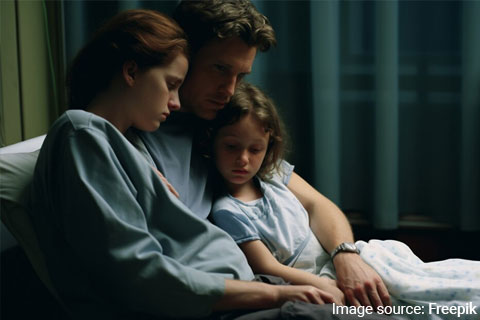Introduction
Parenthood is a demanding journey, and when combined with the challenges of drug treatment, it becomes even more complex. Parents in drug treatment face unique obstacles, but with the right support and strategies, they can successfully navigate this path and build a healthier future for themselves and their children. This article explores the challenges parents encounter in drug treatment and offers insights into effective strategies for overcoming them.
Challenges Faced by Parents in Drug Treatment
- Balancing Responsibilities: Parents in drug treatment often struggle to balance their responsibilities. They must attend treatment sessions, manage their recovery, and fulfill their parenting duties. This balancing act can be overwhelming and requires careful planning and support (Partners for Our Children, 2019).
- Stigma and Judgment: Parents in drug treatment frequently face stigma and judgment from society. This can lead to feelings of shame and isolation, making it harder for them to seek help and support. Overcoming this stigma is crucial for their recovery and well-being (Velleman, 2018).
- Emotional Strain: The emotional toll of addiction and recovery can be significant. Parents may experience guilt, anxiety, and depression, which can affect their ability to care for their children. Addressing these emotional challenges is essential for their overall health (Bagley, 2021).
- Impact on Children: Children of parents in drug treatment may experience emotional and behavioral issues. They might feel neglected or confused about their parents’ condition. Providing support for these children is vital to ensure their well-being (Usher, 2015).
Effective Strategies for Supporting Parents in Drug Treatment
- Comprehensive Treatment Programs: Treatment programs that address both substance use and parenting skills are essential. These programs should offer counseling, parenting classes, and support groups tailored to the needs of parents (Partners for Our Children, 2019).
- Family Involvement: Involving family members in the treatment process can provide additional support and stability. Family therapy sessions can help improve communication and rebuild trust within the family unit (Velleman, 2018).
- Childcare Services: Access to reliable childcare services allows parents to attend treatment sessions without worrying about their children’s safety. This support can reduce stress and enable parents to focus on their recovery (Partners for Our Children, 2019).
- Peer Support Groups: Connecting with other parents in similar situations can provide a sense of community and understanding. Peer support groups offer a safe space to share experiences, challenges, and successes (Usher, 2015).
- Mental Health Support: Addressing co-occurring mental health issues is crucial for parents in drug treatment. Integrated treatment plans that include mental health services can help parents manage their emotional well-being more effectively (Bagley, 2021).
Success Stories: Triumphs of Parents in Drug Treatment
- Rebuilding Relationships: Many parents in drug treatment successfully rebuild their relationships with their children. Through consistent effort and support, they can create a stable and loving environment for their families.
- Achieving Sobriety: Numerous parents achieve long-term sobriety and become role models for their children. Their journey demonstrates the power of resilience and determination in overcoming addiction.
- Breaking the Cycle: By addressing their substance use issues, parents can break the cycle of addiction and create a healthier environment for their children.
Conclusion
Parents in drug treatment face significant challenges, but with the right support and strategies, they can overcome these obstacles and build a brighter future for themselves and their children. Comprehensive treatment programs, family involvement, childcare services, peer support groups, and mental health support are all crucial components of successful recovery. By addressing these needs, we can help parents in drug treatment navigate their journey with strength and resilience.
References
- Partners for Our Children, Systems improvements for child welfare involved parents who are impacted by substance abuse. March 2019. https://partnersforourchildren.org/wp-content/uploads/2022/04/Substance-Use-and-Child-Welfare-brief-2019.pdf
- Velleman, R. & Templeton, L., Impact of parents’ substance misuse on children: an update. 04/11/2019. https://www.cambridge.org/core/journals/bjpsych-advances/article/impact-of-parents-substance-misuse-on-children-an-update/8519374CDB089DFF4568AC1E60F194A6
- Bagley, S. M., MD, MSc; Ventura A. S., MPH; Lasser K. E., MD, MPH; Muench F., PhD. Engaging the Family in the Care of Young Adults With Substance Use Disorders. 01/01/2021. https://publications.aap.org/pediatrics/article/147/Supplement%202/S215/34616/Engaging-the-Family-in-the-Care-of-Young-Adults?autologincheck=redirected
- Usher, A. M., McShane, K. E., & Dwyer, C. A realist review of family-based interventions for children of substance abusing parents. 12/18/2015. https://systematicreviewsjournal.biomedcentral.com/articles/10.1186/s13643-015-0158-4

